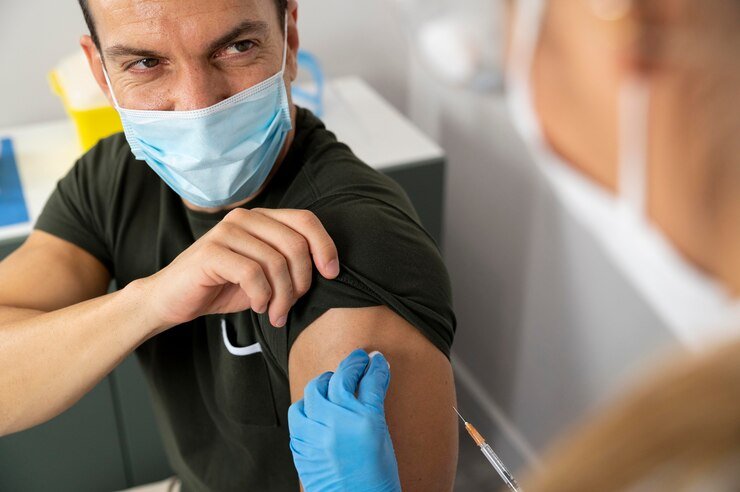Home / Adult Vaccination
Adult vaccination plays a crucial role in maintaining individual health, preventing the spread of infectious diseases, and reducing the burden on healthcare systems. While vaccination is often associated with childhood immunization schedules, it is equally important for adults to stay up-to-date on recommended vaccines to protect themselves and those around them.
Key aspects of adult vaccination include:
Recommended Vaccines: The Centers for Disease Control and Prevention (CDC) and other health organizations provide guidelines on recommended vaccines for adults based on age, health status, occupation, travel history, and other factors. Common vaccines recommended for adults include influenza (flu), pneumococcal, tetanus, diphtheria, pertussis (Tdap), shingles (herpes zoster), and human papillomavirus (HPV) vaccines.
Influenza Vaccination: Annual influenza vaccination is recommended for all adults, particularly those at higher risk of severe complications from flu, such as older adults, pregnant women, individuals with chronic health conditions, and healthcare workers. Influenza vaccination helps prevent flu-related illnesses, hospitalizations, and deaths.
Pneumococcal Vaccination: Pneumococcal vaccines protect against pneumococcal disease, which can cause serious infections such as pneumonia, meningitis, and bloodstream infections. Adults aged 65 and older, as well as those with certain underlying health conditions, are recommended to receive pneumococcal vaccination.
Tdap and Td Vaccination: Tdap vaccine provides protection against tetanus, diphtheria, and pertussis (whooping cough). Adults should receive a Tdap vaccine once if they have not previously received it, followed by a Td (tetanus, diphtheria) booster every 10 years.
Shingles and HPV Vaccination: Shingles vaccine is recommended for adults aged 50 and older to prevent shingles and its complications. HPV vaccine is recommended for adults up to age 45 to prevent certain cancers caused by human papillomavirus.

Vaccine Safety and Effectiveness: Adult vaccines undergo rigorous testing to ensure their safety and effectiveness. Vaccination is generally safe and well-tolerated, with common side effects being mild and temporary, such as soreness at the injection site or low-grade fever.
Vaccine Access and Availability: Adult vaccines are available at healthcare providers’ offices, pharmacies, workplaces, and community vaccination clinics. Many health insurance plans cover the cost of recommended vaccines, and government programs may offer vaccines at reduced or no cost for eligible individuals.
In conclusion, adult vaccination is an essential component of preventive healthcare, helping to protect individuals, communities, and public health by reducing the incidence and impact of vaccine-preventable diseases. Staying up-to-date on recommended vaccines is an important step in maintaining optimal health and well-being throughout adulthood.
 Call Now Button
Call Now Button